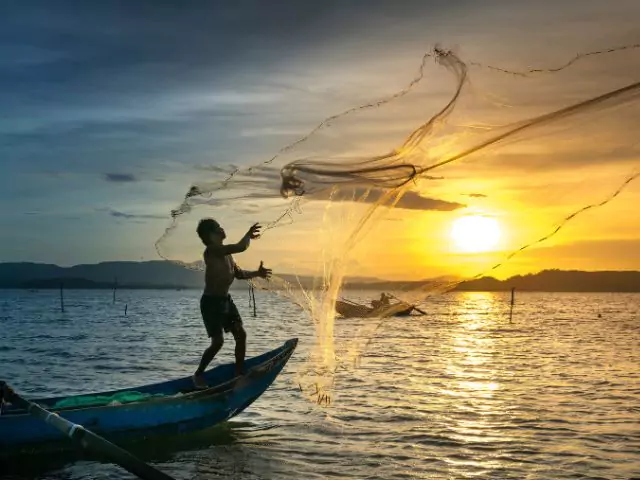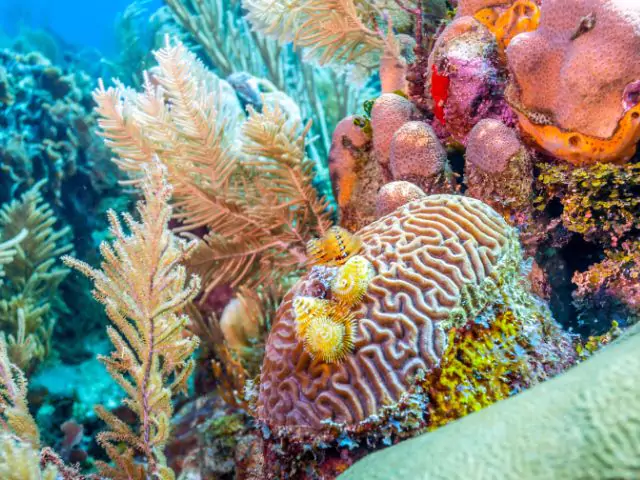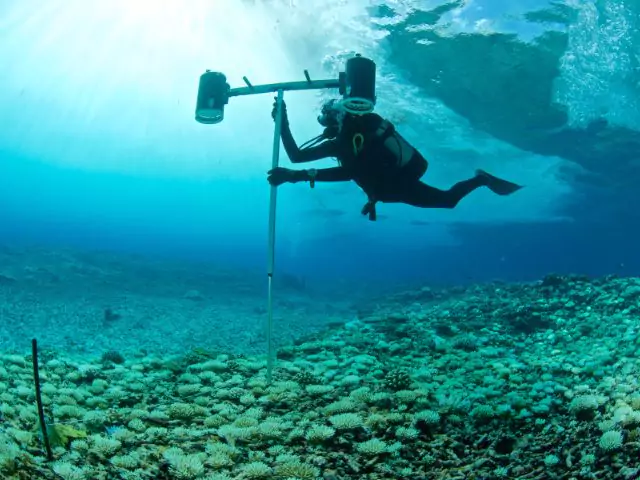Oceans cover a significant portion of our planet and play a vital role in regulating our climate, providing food, supporting livelihoods, and maintaining overall ecological balance.
Without them, all life on Earth would suffer immensely. This is why ocean conservation has become so important to reduce the risks to our ocean’s health posed by factors like pollution, climate change, overfishing, and habitat destruction.
Find out more about what ocean conservation entails, why it’s so important and how you can help our oceans thrive once again below.
What Does Ocean Conservation Mean?
Ocean conservation refers to the protection and sustainable management of the Earth's oceans and their resources. It involves efforts to safeguard marine ecosystems, biodiversity, and the overall health of the oceans.
This includes a wide range of activities like:
- Establishing Marine Protected Areas (MPAs)
- Implementing strategies and regulations on fishing
- Reducing pollution in the oceans
- Addressing the causes and consequences of climate change that affect oceans
- Protecting and preserving threatened and endangered marine species
- Conducting research and monitoring programs to understand the state of the global oceans
- Promoting public awareness about the importance of ocean conservation and the need for sustainable practices
Overall, the goal of ocean conservation is to ensure the long-term survival and well-being of marine species and habitats while promoting responsible and balanced use of marine resources.

When Did Ocean Conservation Start?
Ocean conservation efforts have evolved over time, but concern in this space began to formally emerge as far back as the 19th Century.
The evolution of ocean conservation to this point is as below:
19th Century – Ocean conservation emerges as a concept in response to overfishing
1940s-1950s – Public awareness starts to be raised thanks to books like "The Sea Around Us" by Rachel Carson
1972 - The need to protect oceans and marine life is addressed at The United Nations Conference on the Human Environment
1982 - The United Nations Convention on the Law of the Sea (UNCLOS) was adopted
1992 - The Earth Summit (UNCED) takes place and leads to the adoption of the Agenda 21 - a comprehensive plan of action for sustainable development, including specific measures for the protection of marine ecosystems
2002 - The World Summit on Sustainable Development (WSSD) results in the adoption of the Johannesburg Plan of Implementation, which addressed issues such as overfishing, marine pollution, and the conservation of marine biodiversity
21st Century - There has been an increasing focus on ocean conservation and the establishment of marine protected areas (MPAs) worldwide
Why Is Ocean Conservation Important?
Ocean conservation is critically important for so many reasons, but the main ones include:
Biodiversity and Ecosystem Health
The oceans and deep seas harbour an incredibly diverse array of plant and animal species. Conserving the oceans ensures the preservation of these ecosystems and the species that inhabit them. Having healthy marine ecosystems contributes to the overall health of our planet by regulating climate, providing oxygen, absorbing carbon dioxide, and supporting the global food chain.
Climate Regulation
The oceans play a crucial role in regulating the Earth's climate. They act as a massive heat sink, absorbing vast amounts of heat from the atmosphere. Additionally, marine plants, such as phytoplankton, produce half of the world's oxygen and absorb substantial amounts of carbon dioxide. By protecting the oceans, we help mitigate climate change and its detrimental impacts.
Food Security
Over three billion people rely on seafood as their primary source of protein. Sustainable marine conservation practices ensure the long-term availability of fish and other seafood, supporting the livelihoods of coastal communities and addressing global food security challenges.
Economic Importance
The oceans contribute significantly to the global economy. Industries such as fishing, shipping, tourism, and offshore energy extraction generate substantial revenue and employment opportunities. By conserving the oceans, we safeguard these industries and the economic well-being of coastal communities.
Medicinal Resources
Marine organisms provide a vast array of natural compounds that have the potential to be used in the development of new medicines. Many existing medications, such as those used to treat cancer and heart diseases, have been derived from marine organisms. Preserving marine biodiversity ensures the conservation of potential future medical resources.
Hazard Mitigation
Coastal ecosystems, including coral reefs, mangroves, and salt marshes, serve as natural buffers against storms, tsunamis, and erosion. Conserving these habitats helps protect coastal communities from the devastating impacts of natural disasters.
Overall, ocean conservation is essential for the sustainability of our planet, the well-being of humanity, and the preservation of the many species and ecosystems that depend on healthy oceans.

Ocean Conservation Statistics
Ocean conservation is a critical issue for the health of our planet, and the below statistics highlight just how urgent it is that we prioritise preserving the health and biodiversity of our oceans.
- Approximately 90% of the world's fish stocks are either fully exploited, overexploited, or depleted
- Coral reefs are among the most diverse ecosystems on the planet, supporting approximately 25% of all marine species. However, 60% of the world's coral reefs are under immediate threat from human activities and more than 30% have already been destroyed
- Less than 4% of the world's oceans are currently designated as Marine Protected Areas
- The oceans have absorbed about 30% of the carbon dioxide released into the atmosphere since the Industrial Revolution, leading to ocean acidification which poses huge threats to life in marine environments
- It is estimated that between 1.1 million and 8.8 million tonnes of oil enter the ocean each year from human activities
- By 2050, there will be more plastic than fish in the oceans by weight
How To Help Ocean Conservation
There are several ways you can contribute to ocean conservation efforts and help protect and preserve our oceans:
- Reduce plastic use
- Dispose of waste responsibly
- Conserve water
- Purchase sustainable seafood
- Support companies that support ocean conservation
- Be a responsible tourist and respect marine habitats
- Educate yourself and others
- Support ocean conservation charities
- Work in ocean conservation jobs
By taking action individually and inspiring others to do the same, we can make a positive impact on the health and well-being of our oceans.
Start A Career In Ocean Conservation
If you want to do more to help ocean conservation efforts, starting a career in this space can be highly fulfilling.
You would spend your working life conducting scientific research, studying marine life, and exploring uncharted territories. You’ll likely be involved with new discoveries, come to understand complex ecosystems, and advance your and the publics’ knowledge of marine biology, geology, and other related fields.
The marine science field offers numerous career paths, so you can align your job with specific interests. You can become a Marine Biologist, or pursue roles in research, conservation policy, environmental education, sustainable fisheries management, marine protected area design, and many more. The travel aspect of this career path is also highly appealing as you can also work around the globe, not to mention get the opportunity to work with incredible people and organisations working in this space.

Study Ocean Conservation Courses With learndirect
If you’re looking to work your way into an ocean conservation career, our online Level 3 Diploma in Marine Biology and Ocean Conservation Studies offers a comprehensive education in marine biology and ocean conservation.
By studying this course, you will understand the marine ecosystem, its components, and the interactions between them in great detail. You'll also learn about marine life, habitats, biodiversity, and the environmental challenges faced by our oceans.
As the course is Ofqual regulated and offers the opportunity to gain hands-on experience through a placement working alongside experienced Aquarists, it equips you with the skills and knowledge to understand and address the issues facing marine ecosystems.
If you’re ready to turn your passion into a meaningful career, view this course and its entry requirements in more detail on our website by clicking here. You can also speak to our team more for information, call them now on 01202 006 464 or chat to them online.
If you'd like to find out more about this course and the other courses in our sustainability faculty, you can download our FREE brochure below.



















